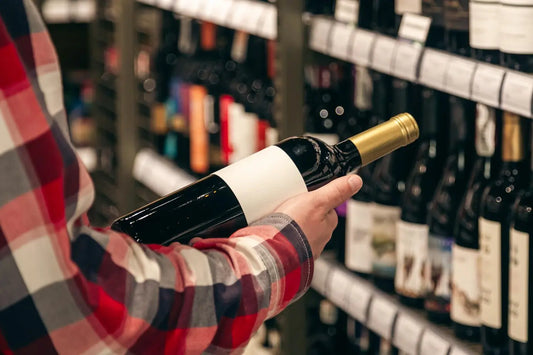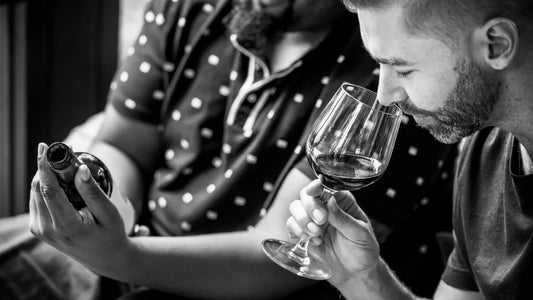How to decode wine labels

Are you looking at a bottle and not quite sure what to make of it? Between appellations, grape varieties, years and estate names, wine labels can seem mysterious. Yet they're full of useful information to help you choose and understand what you're about to drink. Here are a few keys to help you find your way around.
The appellation: a first clue to the origin
It's often what jumps out at you first: "Bordeaux", "Chablis", "Chianti"... The appellation tells you not only where the wine comes from, but also how it was produced. Some areas have strict rules on authorized grape varieties, yields, ageing... It's a real identity card.
The grape variety: sometimes mentioned, always useful
In France, the grape variety (merlot, syrah, chardonnay...) is not always displayed on the label, especially in traditional appellations. But when it is, it's invaluable: each grape variety has its own style, character and aromas. Learning to recognize them allows you to make more informed choices.
The vintage: the year that changes everything
This is the year in which the grapes are harvested. It has a major influence on the style of the wine, especially in regions where the weather varies greatly. A wine from 2020 can be very different from its equivalent in 2021. You can also use it to estimate the wine's ageing potential or maturity.
The producer or estate: a signature
A good producer is often a guarantee of quality. Some estates are renowned for their consistency, their know-how or their particular approach (organic, natural, plot-based...). Remembering a few names as you taste can help you find styles you like.
Special mentions: organic, barrel-aged, etc.
Des mentions comme "élevé en fût de chêne", "vin biologique", "non filtré" te donnent des indications précieuses sur le style du vin. Elles ne garantissent pas qu’il te plaira, mais elles t’aident à anticiper ce que tu vas trouver dans ton verre.
Conclusion
Décoder une étiquette, c’est un peu comme lire entre les lignes. Plus tu prends le temps de les observer, plus tu apprendras à reconnaître les éléments clés qui te parlent. C’est une compétence précieuse pour progresser en dégustation — et un sujet passionnant abordé en détail dans les formations WSET.


